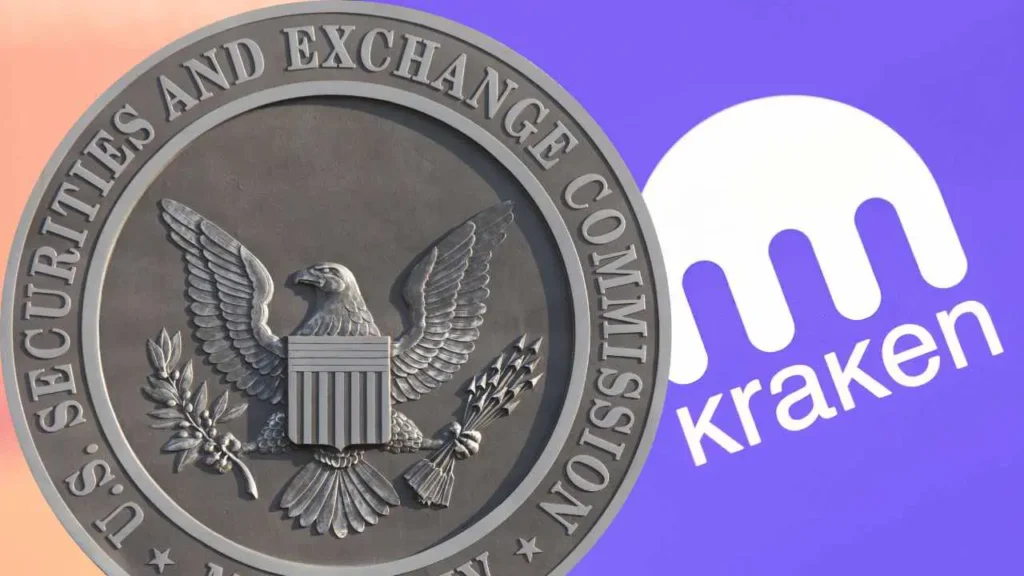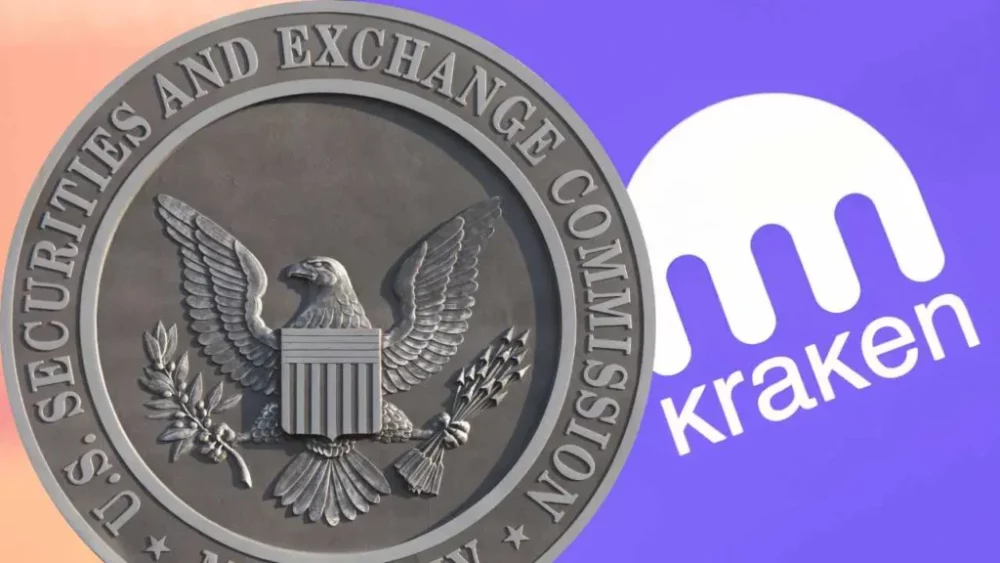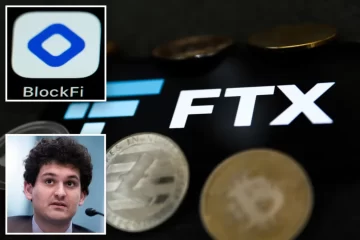- The US SEC accused Kraken of operating as an unregistered exchange, broker, dealer, and clearing agency.
- The first Kraken lawsuit occurred around Q3 2018 when the regulatory body filed a lawsuit alleging that Kraken had facilitated the buying and selling of unregistered crypto asset securities.
- Kraken exchanges gained the attention of the US Treasury Department on suspicion of allowing Iranian Users to utilize the site’s services in violation of federal sanctions.
Crypto laws have been a heated debate since Bitcoin proved more valuable than we initially thought. Unfortunately, attaining such a feat has proven to be quite the challenge. From the start, Sakamoto created the concept of cryptocurrency to forgo years of centralized control generally. Years later, his technology ushered in one of the most significant technological revolutions known today, Web3.
Since then, developers have tried to find ways to integrate technology into our everyday lives. Unfortunately, crypto laws are necessary to protect citizens from scammers and provide a means by which an economy can thrive. After the FTX fiasco, it became clear that the vague crypto laws couldn’t keep up with the advancing nature of cryptocurrency. Thus, the US SEC began a manhunt to shut down and flag any crypto-based organizations’ operation between the loopholes of set crypt laws.
In recent developments, the US SEC has launched another Kraken lawsuit, reopening a legal debate many thought was resolved. The Kraken crypto exchange has taken much offense to the new allegation and has clearly stated they are ready to defend itself against the “protective measures” of an “oppressive” regulatory body.
Reopening another Kraken Lawsuit
With the curtains of the FTX curtains closed, and the influence of Binance culled, the US SEC has turned its attention once more to Kraken. The former third-largest crypto exchange has laid low for months to recover from its previous Kraken lawsuit. Unfortunately, its peace was shortlived as the US SEC accused Kraken of operating as an unregistered exchange, broker, dealer, and clearing agency. In addition, the regulatory body claims that Kraken has commingled customer and corporate funds to operate for the past few months.
Many see this Kraken lawsuit as an afront for the SEC to sink its claws within the crypto market. On 20Th Nov, an official report was released stating that Kraken had created a significant risk by blending up to $33 billion in customer funds with its corporate assets. The report said, “Similarly, Kraken has held at times more than $5 billion worth of its customers’ cash, and it also commingles some of its customers’ cash with some of its own. Kraken has sometimes paid operational expenses directly from bank accounts holding customer cash.“
Also, Read Kraken Exchange gains entrance to Netherlands ’s crypto industry.
This new Kraken lawsuit echoes the recent trend, forcing most crypto titans to run away from the US market. According to the regulatory body, Kraken offers several unregistered securities like the Algorand token (ALGO), Polygon’s MATIC, and NEAR. In retaliation for the consistent back and forth, the SEC has filed a petition to permanently ban Kraken from operating as an unregistered exchange and give back ill-gained investment.

The US SEC vs Kraken has become a heated topic since 2018, and now Kraken may face destruction.[Photo/Cryptopolitan]
In response to the new Kraken Lawsuit, the former third-largest crypto exchange said, “We disagree with the SEC’s complaint against Kraken, stand firm in our view that we do not list securities, and plan to defend our position vigorously. The SEC has repeatedly challenged crypto exchanges to come in and register without a single law supporting their position and no clear path to registration. And despite opposition from lawmakers, the SEC continues to pursue legal action against these crypto exchanges.”
He added, “For years, we have advocated for effective U.S. market regulation that addresses the unique risks and benefits that crypto presents to all individuals. We believe Congressional action is the most appropriate path to resolving the lack of regulatory clarity in the U.S. It is disappointing to see the SEC continue down its path of regulation by enforcement, which harms American consumers, stunts innovation, and damages U.S. competitiveness globally.“
What is the story behind the Kraken Lawsuit?
Initially, regulatory bodies created several crypto laws to determine the set criteria and licenses a crypto exchange must adhere to. These laws generally prevented chaos from erupting for decades, but the growing use of digital assets concerned most regulatory bodies. Generally, Bitcoin and other altcoins did not have a standard method to benefit the economy directly.
Its high volatility accompanies the vague crypto laws, making it an unreliable asset. However, once Stablecoins and CBDCs came into the picture, it shifted the dynamics of power in the financial sector. Since stablecoins and CBDCs have a sense of stability amid digital assets. This brought new challenges to set crypto laws, and its gradual use threatened most fiat currencies.
To prevent economic suicide, most regulatory bodies banned the use of digital assets, while some tried to set a balanced regulatory framework. A prime example is Singapore, a model nation in the web3 community for its balanced legal frameworks around digital assets.
Unfortunately, not all regions had such friendly laws. With centralized exchanges dominating the industry, certain regulatory bodies became concerned over their high rise. Others, like the US SEC, sought to classify some crypto assets as securities to monitor their flow in and out, preventing money laundering issues. However, not all exchanges saw this as a means of protection.
Also, Read The Internal Revenue Services forces Kraken Exchange to surrender user information.
The First Kraken Lawsuit
Kraken, the third largest crypto exchange, has been at odds with the US SEC since 2018. Initially, the first Kraken lawsuit occurred around Q3 2018 when the regulatory body filed a lawsuit alleging that Kraken had facilitated the buying and selling of unregistered crypto asset securities. This act went against several clauses in the Securities Exchange Act of 1934.
The Kraken Lawsuit sought injunctive relief, conduct-based injunctions, and disgorgement of ill-gotten gains plus interest and penalties. Kraken had previously paid a $30 million settlement over a staking program that the US SEC flagged. With the second Kraken lawsuit in a year, the third largest crypto exchange stood its ground, kickstarting one of the most iconic legal battles in the web3 industry.
According to the regulatory body, the Kraken lawsuit emphasizes how the exchange’s business practices, deficient internal controls, and poor record-keeping presented numerous customer risks. In addition, it provided the perfect breeding ground for money laundering activities, easily luring terrorist groups.
According to their official statement, the SEC said, “Kraken’s alleged failure to register these functions has deprived investors of significant protections, including inspection by the SEC, recordkeeping requirements, and safeguards against conflicts of interest, among others.”
What kickstarted the downfall of Kraken
The next heated clash concerning a Kraken Lawsuit occurred in July 2022. Kraken exchanges gained the attention of the US Treasury Department on suspicion of allowing Iranian Users to utilize the site’s services in violation of federal sanctions.
According to the investigations, the Department of Justice imposed several fines against the exchange, although it never clarified the timeline for the enforcement. CEO Marco Santori responded, “Kraken has robust compliance measures in place and continues to grow its compliance team to match its business growth. Kraken closely monitors compliance with sanctions laws and, as a general matter, reports to regulators even potential issues.”
Unfortunately, after the FTX crash, the US SEC doubled its efforts after realizing the true strength of centralized exchanges. Almost immediately, the regulatory bodies reopened previous Kraken lawsuits and aimed to ensure the organization adhered to their ruling.
On February 9th, 2023, the US SEC stated that Kraken had failed to register the offer and sake of their crypto-staking-as-a-services. At the time, the crypto industry was at its knees as its credibility instantly plummeted. Kraken had made drastic moves to ensure business continuity, and with the latest addition to its lawsuit, it had no choice but to comply. In violation of the set crypto laws, Kraken had to pay a $30 million fine disgorgement, prejudgment interest, and civil penalties.
Wrapping up
With Binance culled, the entire crypto industry faces trying times. Many speculate that these exchanges’ decentralized nature directly threatens the US’s financial foothold. The US SEC has urged many exchanges to come and register. Still, in doing so, it ultimately undermines the central concept of web3—initially, regulatory bodies designed crypt laws to prevent scammers and hackers from exploiting customers.
Also, Read Is the third largest crypto exchange, Kraken, facing bankruptcy?
However, this trend has shifted into becoming a pursuit of control. Sakamoto went into hiding because he knew the innovation he brought would directly challenge world-set systems. His ideals, vision, and projects are under fire from centralized systems. Kraken faces a grave hurdle; it could permanently end its long career if not addressed. If so, does this mean the centralized systems have rejected the freedom digital assets pose to the world?
- SEO Powered Content & PR Distribution. Get Amplified Today.
- PlatoData.Network Vertical Generative Ai. Empower Yourself. Access Here.
- PlatoAiStream. Web3 Intelligence. Knowledge Amplified. Access Here.
- PlatoESG. Carbon, CleanTech, Energy, Environment, Solar, Waste Management. Access Here.
- PlatoHealth. Biotech and Clinical Trials Intelligence. Access Here.
- Source: https://web3africa.news/2023/11/28/news/kraken-lawsuit-reopened-us-sec/
- :has
- :is
- :not
- $UP
- 1934
- 2018
- 2022
- 2023
- 20th
- 7
- 9th
- a
- According
- Accounts
- accused
- Act
- Action
- activities
- added
- addition
- addressed
- addresses
- adhere
- adhered
- advancing
- After
- against
- agency
- aimed
- ALGO
- Algorand
- All
- alleged
- Allowing
- almost
- also
- Altcoins
- Although
- American
- Amid
- among
- an
- and
- Another
- any
- appropriate
- ARE
- around
- AS
- asset
- Assets
- At
- attention
- away
- back
- balanced
- Ban
- Bank
- bank accounts
- Bankruptcy
- banned
- battles
- BE
- became
- because
- become
- becoming
- been
- began
- behind
- believe
- benefit
- benefits
- between
- Billion
- binance
- Bitcoin
- blending
- bodies
- body
- broker
- brought
- business
- business continuity
- business practices
- but
- Buying
- by
- came
- CAN
- Career
- Cash
- CBDCs
- central
- centralized
- Centralized Exchanges
- centralized systems
- ceo
- certain
- challenge
- challenged
- challenges
- Chaos
- choice
- Citizens
- civil
- claims
- clarified
- clarity
- Clash
- Classify
- clear
- Clearing
- clearly
- closed
- closely
- CNBC
- come
- community
- competitiveness
- complaint
- compliance
- compliance measures
- comply
- concept
- concerned
- concerning
- conflicts
- Congressional
- consistent
- Consumers
- continue
- continues
- continuity
- control
- controls
- Corporate
- could
- Crash
- created
- Credibility
- criteria
- crypt
- crypto
- crypto asset
- crypto exchange
- Crypto Exchanges
- Crypto Industry
- crypto laws
- Crypto Market
- crypto presents
- crypto-assets
- crypto-based
- cryptocurrency
- currencies
- customer
- Customer Funds
- Customers
- dealer
- debate
- decades
- decentralized
- Department
- department of justice
- designed
- Despite
- Determine
- developers
- developments
- DID
- digital
- Digital Assets
- directly
- disappointing
- do
- does
- doing
- dominating
- doubled
- down
- downfall
- dynamics
- easily
- echoes
- Economic
- economy
- Effective
- efforts
- emphasizes
- end
- enforcement
- ensure
- Entire
- Even
- everyday
- example
- exchange
- Exchanges
- expenses
- exploiting
- Face
- faces
- facilitated
- facing
- Failed
- Failure
- feat
- February
- Federal
- few
- Fiat
- fiat currencies
- filed
- financial
- Financial sector
- Find
- fine
- fines
- Fire
- Firm
- First
- flagged
- flow
- For
- Forces
- forcing
- Former
- forth
- Framework
- frameworks
- Freedom
- friendly
- from
- FTX
- ftx crash
- functions
- funds
- gained
- Gains
- General
- generally
- Give
- Globally
- gradual
- Ground
- Group’s
- Grow
- Growing
- Growth
- hackers
- had
- harms
- Have
- he
- Held
- High
- his
- holding
- How
- However
- HTTPS
- hurdle
- iconic
- ideals
- if
- immediately
- imposed
- in
- Including
- individuals
- industry
- influence
- initially
- Innovation
- instantly
- integrate
- interest
- internal
- into
- Investigations
- investment
- Investors
- Iranian
- issues
- IT
- ITS
- itself
- July
- Justice
- Keep
- kickstarted
- known
- Kraken
- Kraken crypto exchange
- Kraken exchange
- Lack
- largest
- Largest Crypto
- later
- latest
- launched
- Laundering
- Law
- lawmakers
- Laws
- lawsuit
- Lawsuits
- Legal
- Legal Action
- licenses
- like
- List
- Lives
- Long
- loopholes
- Low
- made
- Making
- many
- Marco
- Market
- Match
- Matic
- Matter
- max-width
- May..
- McKinsey
- mean
- means
- measures
- method
- million
- model
- money
- Money Laundering
- Monitor
- monitors
- months
- more
- most
- moves
- much
- must
- nation
- Nature
- Near
- necessary
- Netherlands
- never
- New
- next
- no
- nov
- now
- numerous
- occurred
- Odds
- of
- offer
- Offers
- official
- Old
- on
- once
- ONE
- operate
- operating
- operation
- operational
- opposition
- organization
- Other
- Others
- our
- out
- over
- own
- paid
- past
- path
- Pay
- peace
- perfect
- permanently
- picture
- Place
- plan
- plato
- Plato Data Intelligence
- PlatoData
- plus
- Polygon’s
- poor
- pose
- position
- potential
- power
- practices
- presented
- presents
- prevent
- preventing
- previous
- previously
- Prime
- Program
- projects
- protect
- protection
- proved
- proven
- provide
- provided
- pursue
- pursuit
- Q3
- quite
- ready
- realizing
- recent
- record-keeping
- Recover
- regions
- register
- Registration
- Regulation
- regulation by enforcement
- Regulators
- regulatory
- Rejected..
- released
- relief
- REPEATEDLY
- report
- Reports
- Requirements
- resolved
- resolving
- response
- revenue
- Rise
- Risk
- risks
- robust
- ruling
- Run
- s
- safeguards
- Said
- sake
- Sanctions
- saw
- Scammers
- SEC
- Second
- sector
- Securities
- see
- Selling
- sense
- Services
- set
- settlement
- several
- shifted
- shut
- Shut down
- significant
- since
- Singapore
- single
- So
- some
- sometimes
- sought
- Stability
- Stablecoins
- Staking
- stand
- standard
- start
- stated
- Statement
- stating
- Still
- Story
- strength
- such
- suicide
- Supporting
- Systems
- taken
- team
- technological
- Technology
- terrorist
- than
- that
- The
- the world
- their
- then
- These
- they
- Third
- this
- thought
- threatens
- Thrive
- Thus
- time
- timeline
- times
- titans
- to
- today
- token
- topic
- treasury
- Treasury Department
- Trend
- tried
- true
- trying
- Turned
- u.s.
- Ultimately
- under
- unfortunately
- unique
- unregistered
- unregistered securities
- us
- US Sec
- US Treasury
- Us Treasury Department
- use
- User
- users
- utilize
- Valuable
- View
- VIOLATION
- vision
- Volatility
- vs
- was
- ways
- we
- Web3
- Web3 community
- Web3 industry
- webp
- went
- when
- which
- while
- with
- within
- without
- world
- worth
- would
- wounds
- year
- years
- zephyrnet













